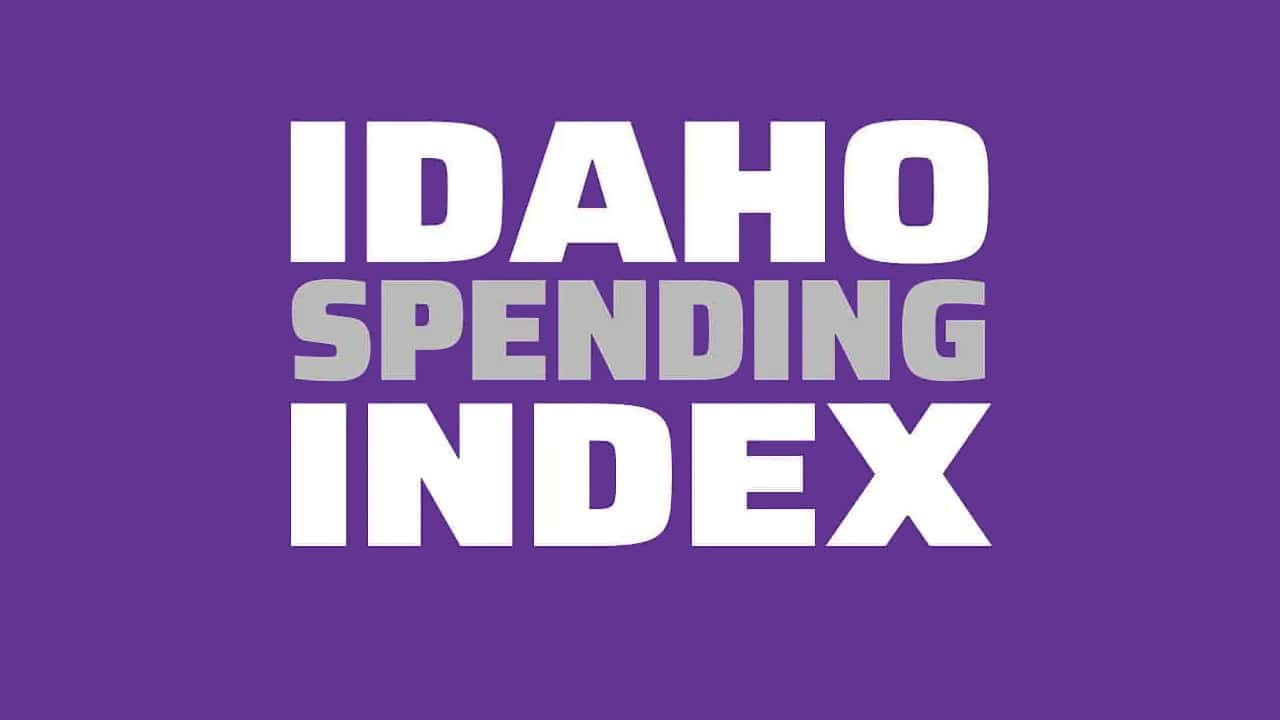


The Idaho Spending Index serves to provide a fiscally conservative perspective on state budgeting while providing an unbiased measurement of how Idaho lawmakers apply these values to their voting behavior on appropriations bills. Each bill is analyzed within the context of the metrics below. They receive one (+1) point for each metric that is satisfied by freedom-focused policymaking and lose one (-1) point for each instance in which the inverse is true. The sum of these points composes the score for the bill.
Analyst: Niklas Kleinworth
Rating: -2
Bill Description: Senate Bill 1453 appropriates $80,281,800 and 346.50 full-time positions to other programs within the Department of Health and Welfare for fiscal year 2025.
This legislation includes appropriations for the following divisions: Indirect Support Services, Independent Councils, and Licensing and Certification.
Does this budget enact powers and activities that extend beyond the proper role of government? Conversely, does this budget fulfill the proper role of government?
The Domestic Violence Council provides funding to nonprofit organizations and some local government agencies that serve victims of domestic violence. A total of $11.3 million were distributed to 47 programs statewide in the 2024 fiscal year.
The sheer number of nonprofit organizations available to serve victims of domestic violence demonstrates the council’s obsolescence, rather than its need. These entities are well distributed across the state and exemplify the diverse services available to victims of these crimes. However, the DVC has become merely an entity to pass through federal funds to these agencies. It is not the proper role of the government to financially support these organizations, but the role of the community.
(-1)
Does this budget incur any wasteful spending among discretionary funds, including new line items? Conversely, does this budget contain any provisions that serve to reduce spending where possible (i.e. base reductions, debt reconciliation, etc.)?
This legislation appropriates $6,036,800 in replacement items to the Division of Indirect Support Services. Many of these expenditures are frivolous expenses, rooted in wants rather than needs within the agency. For example, $119,300 of this appropriation will go to remodel projects like a breakroom/kitchen remodel in the Twin Falls field office. This is a particularly frivolous expense.
Just over $5 million of these funds will go toward IT equipment similar to requests seen from other agencies. However, this funding also includes upgrades to install video teleconferencing systems. Though video conferencing is common today, older phone-based systems still serve conferencing purposes well. Modern video conferencing technology even makes it possible to do away with large conference rooms entirely. There is lots of room to trim unnecessary replacement items in this budget.
(-1)
Is the maintenance budget inappropriate for the needs of the state, the size of the agency, or the inflationary environment of the economy? Conversely, is the maintenance budget appropriate given the needs of the state and economic pressures?
This legislation confirms the program maintenance budget for other programs within the Department of Health and Welfare of $72,836,000, growing it from the base by 5.2% in the last three years. This demonstrates acceptable growth from the FY 2022 base in the cost to maintain the agency.
(+1)
Does this budget perpetuate or expand state dependence on federal dollars, thereby violating principles of federalism? Conversely, does this budget actively reduce the amount of federal dollars used to balance this budget?
Senate Bill 1453 also appropriates $5,368,900 in federal funds to the Division of Licensing and Certification, mostly in trustee and benefits payments. These funds constitute more than 62% of the total appropriation for the 2025 fiscal year.
This legislation also appropriates $13,948,700 in federal funds to the Division of Independent Councils, mostly in trustee and benefits payments. These funds constitute more than 92% of the total appropriation for the 2025 fiscal year. This demonstrates that the division is critically dependent on federal funds to support its programs and operations.
Finally, this legislation appropriates $29,185,500 in federal funds to the Division of Indirect Support Services. This constitutes 52% of the total appropriations for the 2025 fiscal year. Worse yet, 48% of the division’s 262.60 FTPs are federally funded. Being that the Division of Indirect Support Services is the administrative hub for the Department of Health and Welfare, this also illustrates how deeply the department at large depends on federal funding.
All three of these divisions are substantially dependent on the federal government to support their programs and operations.
(-1)
Does this budget contain hidden fund transfers or supplemental expenditures that work to enact new policy or are not valid emergency expenditures? Conversely, are fund transfers only made to stabilization funds or are supplemental requests only made in the interest of resolving valid fiscal emergencies?
Senate Bill 1453 provides for several supplemental appropriations across two of the three divisions included in this budget.
This legislation includes one supplemental transfer of $400,000 from personnel costs to operating expenditures. The department lacks enough people to inspect skilled nursing facilities. It was common practice to use funds from vacant positions to cover gaps in funding for these programs prior to the 2024 fiscal year, but language included in the appropriation for the 2024 fiscal year prohibited this activity.
Similar adjustments were made in the Division of Indirect Support Services. There were two requests to transfer funds from personnel costs to operating expenditures. One request is for $400,000 to support the Medicaid Program Integrity Unit. The other is for $1,305,200 to cover inflationary costs.
These transfer requests correct the fiscal year 2024 budget to account for this unexpected change in policy.
The third request is for $296,400 to support the agency as it restructures the federal cost allocation plan. Switching to the state’s new financial management system, LUMA will force the agency to restructure how it tracks and manages federal funds. These funds will support staff training and other costs associated with the restructuring.
All of these requests are valid emergency expenditures that warrant the use of a supplemental appropriation.
(0)

